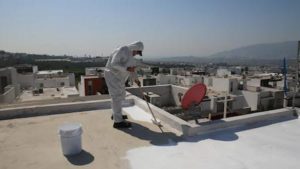 If you are responsible for a commercial roof, you have probably reflected on the inevitability that you will need to invest in a roof replacement at some point during the life of the building. However, before you take steps to replace your commercial roof, there may be a cost-effective, eco-friendly alternative that you overlooked.
If you are responsible for a commercial roof, you have probably reflected on the inevitability that you will need to invest in a roof replacement at some point during the life of the building. However, before you take steps to replace your commercial roof, there may be a cost-effective, eco-friendly alternative that you overlooked.
A roof restoration system can protect your building from water damage, UV light, and various other hazards. The proper roof coating can also repair the damage that already exists. That being said, not all roof coatings provide the same protection for your commercial roof. What is the difference between acrylic roof coating and silicone coating? Which one is better to use on a commercial building?
What Is Roof Restoration?
Roof restoration is defined as the process of using a highly engineered coating that repairs damage and prevents future damage related to the elements and human contact. A roof restoration system allows the property managers to cut costs, reduce their environmental impact, and extend the longevity of the existing roof.
Types of Roof Coating Systems
If you want to prolong the life of your roof, you should consider a roof coating. Roof coatings were designed as a preventive measure to protect roofs from UV damage and leaks. They are also invaluable assets for repairing a commercial roof that has already sustained damage. Roof coating technology is available in silicone, acrylic, and aluminum.
What Is Acrylic Roof Coating?
Acrylic roof coating is a polymer specifically designed to coat roofs. Often called an “acrylic elastomeric” coating, this name refers to a “liquid applied, monolithic (seamless), fully adhered, elastomeric membrane that formed in situ on the roof.”
The acrylic coating is 5 to 10 times thicker than house paint and not as brittle. This type of coating is usually white in color. While an acrylic coating may look similar to paint, its benefits are very different.
Safe to Use, Easy to Apply
An acrylic roof coating is waterborne. It is applied as a liquid that hardens as it dries. This type of coating is considered easy to use because it does not require mixing with any other components. Acrylic roof coatings do not contain volatile organic compounds (VOC) that are harmful to the user and the environment.
Since these coatings are not red labeled, they are easy to transport through normal shipping avenues, which is an additional cost-saving.
Acrylic roof coatings are also no more toxic than a can of house paint, making them easy to store in the home, garage, or warehouse.
Elastomeric Membrane
If you are not familiar with the roofing industry, you may not be familiar with the term “elastomeric membrane.” What is it? In short, an elastomeric membrane is an aesthetic, durable, weather-resistant, and easy-to-maintain coating that is capable of stretching at least twice its length. Elastomeric membranes are used in commercial roofing as a liquid that is applied on top of an existing roofing system.
Not Paint
While elastomeric coatings are applied like paint, they are not the same thing. Acrylic elastomeric roof coating is the same viscosity as paint. It can be sprayed or brushed onto the commercial roof. However, paint does not require resistance to ponding water, flexibility at cold temperatures, or highly reflective properties. Paint also does not need to expand or shrink depending on the elements or foot traffic.
Acrylic elastomeric coatings require all of these features. They need to tolerate a variety of external stressors and ponding water contact for an extended period.
Benefits of Acrylic Roofing Systems
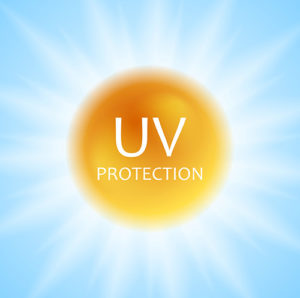 Acrylic coatings offer protection from UV light; pounding water; inclement weather like snow or wind; and much more! In addition to shielding roofing materials from elements that can decrease the roof’s lifespan, acrylic coatings can also repair damage.
Acrylic coatings offer protection from UV light; pounding water; inclement weather like snow or wind; and much more! In addition to shielding roofing materials from elements that can decrease the roof’s lifespan, acrylic coatings can also repair damage.
The ability to prevent and repair damage is a cost-effective tool for anyone who does not want to work a roof replacement into their budget. However, the cost savings do not stop there.
An acrylic coatings’ ability to reflect UV light means a commercial building using an acrylic roofing system will experience a reduction in energy costs. In turn, these energy savings help protect the environment.
Make it WHITE
Acrylic roof coatings are often white in color. This color provides two noticeable benefits for a commercial roof. First, it reduces the heat of the roof membrane. Also, white acrylic roof coatings extend the roof’s life and represent measurable energy savings by using UV blocking properties.
According to experts, another benefit of white acrylic roof coatings is that they can reflect as much as 85% of sunlight, which significantly reduces the temperature in the building, lowering air conditioning costs.
Dynamic Environments
A commercial roof is under constant pressure to adapt. Throughout the year, a roof contends with thermal expansion; the weight of snow and rain; wind uplifts; seismic expansion; and much more. A commercial roof must be able to hold up under these conditions in both high and low temperatures. The commercial roof must also be able to endure foot traffic from maintenance crews.
Caulks and Sealants
It is important to note that acrylic roof coatings are not the same as caulks or sealants. Elastomeric coatings tolerate expanding and contrasting pressures like caulk or sealant, but acrylic roof coatings are designed to withstand standing water. They are also impact-resistant and highly reflective. Caulk or sealant does not have any of these properties.
The Durable Choice
UV radiation is very harmful to a standard asphalt commercial roof. Over time, the asphalt absorbs the UV light causing the asphalt to deteriorate. Acrylic roof coating contains UV pigment blockers that reflect the degrading UV radiation. This process is done without causing harm to the environment, and it prolongs the life of the roof.
What Is Silicone Roof Coating?
Silicone is a high-performance polymer that aids in protecting a roof from UV damage, leaking, and other weathering effects. A silicone elastomeric coating is a single layer of silicone rolled or sprayed on a roof to repair blisters, cracks, or seams. Silicone coatings are most often applied to a flat or low-sloped roof, making it an ideal roof coating for residential properties and commercial buildings.
This type of roofing system is called a high solids (HS) protective layer. This layer does not increase the roof’s installation or inbuilt system. However, if you want to protect your roof from the elements, a silicone roof coating is the ideal choice.
What Is High Solid Silicone?
High solid silicone (HS) means that the coating has more silicone per gallon left over on the roof after the coating cures. The thickness of silicone is important to a contractor because it directly relates to a roof’s longevity. The thickness of the cured layer also determines what type of warranty can be applied to the roof.
High solid silicone is also the best choice for a single-layer application process. If your roofing restoration includes fees associated with materials, a high solid silicone means that a contractor will use fewer materials because they only use one layer.
What Is Low Solid Silicone?
Low solid or standard silicone (SS) has less silicone per gallon. A contractor often uses more layers to reach the desired effect. Standard silicone is prone to pinholes and mug cracks. These imperfections may seem like minor issues when the roof is newly restored, but they can lead to more significant problems as time passes.
Before you invest in a silicone roof restoration system, ask your contractor which style of solid they intend to use for your roof.
Benefits of Silicone Roof Coating
 There are several cost-saving benefits to a silicone roof coating. The coating creates a smooth, waterproof layer that reflects UV light and resists even the most forceful monsoon. Silicone roof systems also hold up in both high and cold temperatures. Another benefit to using a roof coating is that there is zero construction involved in the process. The coasting is placed over the existing roof.
There are several cost-saving benefits to a silicone roof coating. The coating creates a smooth, waterproof layer that reflects UV light and resists even the most forceful monsoon. Silicone roof systems also hold up in both high and cold temperatures. Another benefit to using a roof coating is that there is zero construction involved in the process. The coasting is placed over the existing roof.
Drawbacks of Silicone Roof Coating Systems
Usually, when people talk about the benefits of a silicone roof coating, they are quick to mention that a silicone roof is extremely UV stable. However, that doesn’t mean that there are is not a downside to these coatings.
These roof coatings are very slick when they are wet. Roofs coated with a silicone roof will have to install a “walk pad” in high traffic areas for safety. They also attracted dirt and other particles meaning it will need to be regularly maintained to protect its reflective potency.
Acrylic Roof Coating vs Silicone Roof Coating
With so many similar features between the two roof coatings, a contractor or property manager may wonder which roof coating system is best for their commercial roof. As stated earlier, coating a roof is an ideal way to experience energy savings and prolong the life of your commercial roof. These savings can be achieved with both an acrylic and silicone roof coating system.
While silicone coatings are known to protect structures from ponding water better, acrylic coatings are valuable to use on “many types of substrates; modified bitumen, metal, built-up, single-ply and spray polyurethane foam.”
The best way to determine if your commercial structure needs an acrylic or silicone roofing system is to contact a licensed roofing professional. They can help you understand the needs of your building, and walk you through the pros and cons of the coating systems available.
Pamblanco Painting Contractors is a family-owned and operated residential and commercial painting business and has been providing painting and roof coating services since 1993. Get your free quote today!

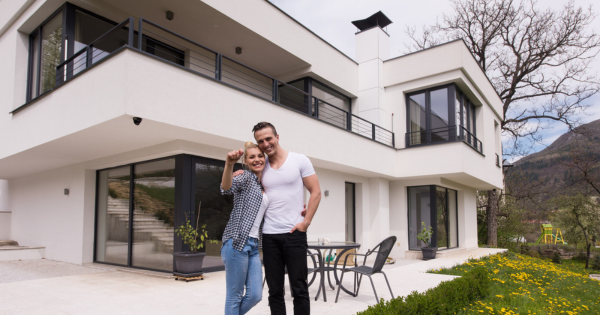
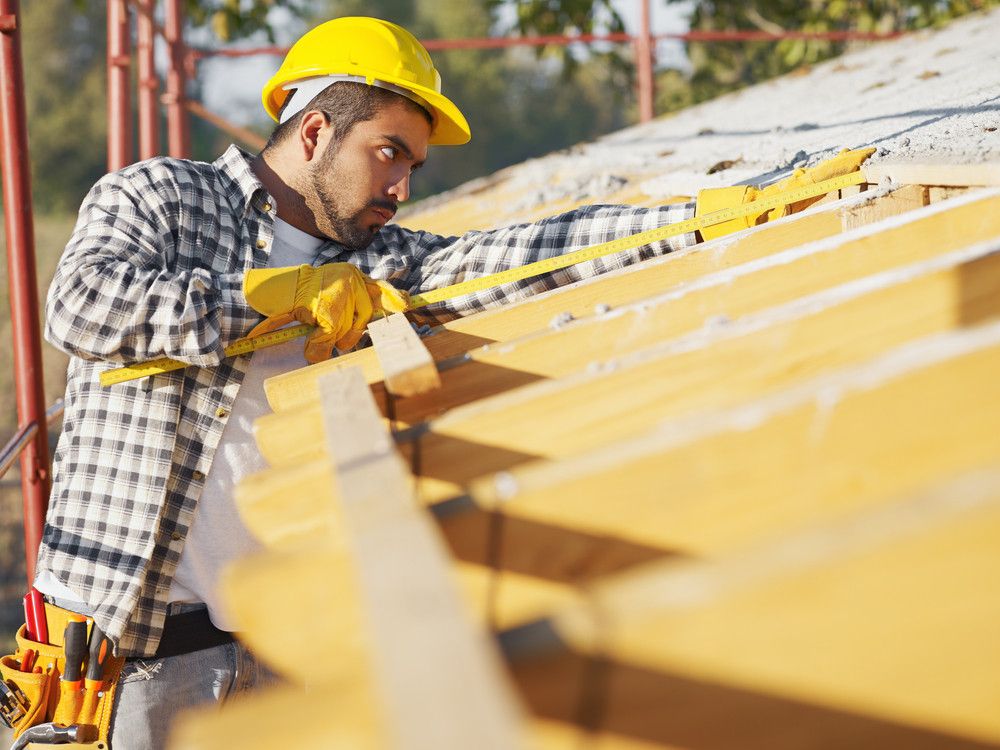
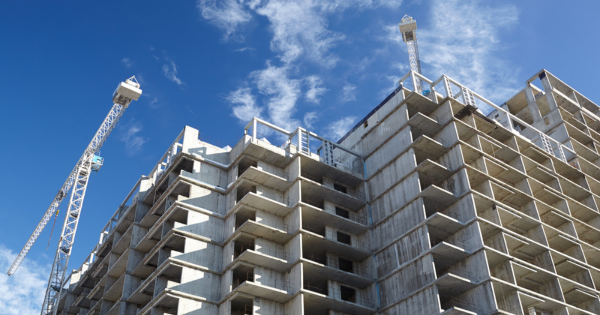
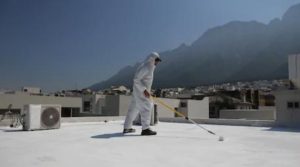 From crackling heat to colossal downpours, our roofs take a beating all year long. If your roof is starting to show its age, you may be thinking about a roof replacement. However, replacing your roof isn’t the only option available to you. You can take steps to protect the lifespan of your roof and repair the damage that already exists.
From crackling heat to colossal downpours, our roofs take a beating all year long. If your roof is starting to show its age, you may be thinking about a roof replacement. However, replacing your roof isn’t the only option available to you. You can take steps to protect the lifespan of your roof and repair the damage that already exists. One of the best roof coating options available is a
One of the best roof coating options available is a 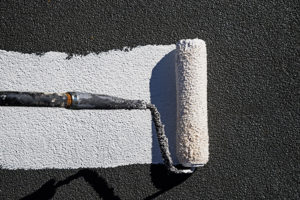
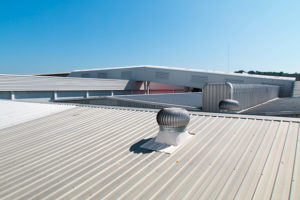
 Acrylic coatings offer protection from UV light; pounding water; inclement weather like snow or wind; and much more! In addition to shielding roofing materials from elements that can decrease the roof’s lifespan, acrylic coatings can also repair damage.
Acrylic coatings offer protection from UV light; pounding water; inclement weather like snow or wind; and much more! In addition to shielding roofing materials from elements that can decrease the roof’s lifespan, acrylic coatings can also repair damage. There are several cost-saving benefits to a silicone roof coating. The coating creates a smooth, waterproof layer that reflects UV light and resists even the most forceful monsoon. Silicone roof systems also hold up in both high and cold temperatures. Another benefit to using a roof coating is that there is zero construction involved in the process. The coasting is placed over the existing roof.
There are several cost-saving benefits to a silicone roof coating. The coating creates a smooth, waterproof layer that reflects UV light and resists even the most forceful monsoon. Silicone roof systems also hold up in both high and cold temperatures. Another benefit to using a roof coating is that there is zero construction involved in the process. The coasting is placed over the existing roof.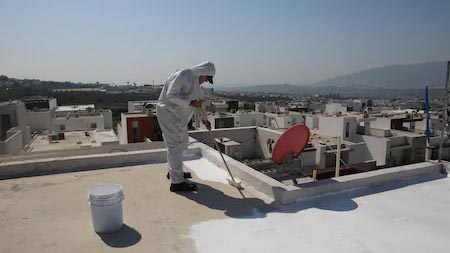 Roofs play an integral role in keeping your home and family safe. Several variables impact how long your roof coating lasts. Your surrounding environment is one of the main factors that affect the quality over time. Certain states have more treacherous weather conditions than others. Thus, resulting in an increased rate of material decay.
Roofs play an integral role in keeping your home and family safe. Several variables impact how long your roof coating lasts. Your surrounding environment is one of the main factors that affect the quality over time. Certain states have more treacherous weather conditions than others. Thus, resulting in an increased rate of material decay.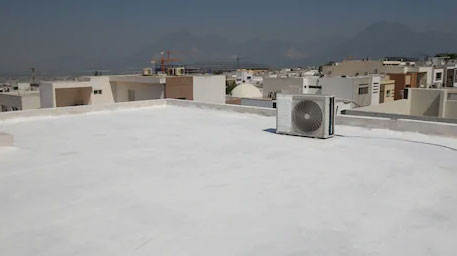 Elastomeric roof coating is a liquid compound used to protect roofing material from weather damage. Commonly, elastomeric roof coatings are found on low slope roofs. There are several benefits to using elastomeric roof coating. Elastomeric roof coatings are compatible with various roofing materials. They also increase the lifespan of your roof. Resulting in lower maintenance costs over time. Elastomeric roof coatings also save you money on energy expenses. Because they have a unique property that repels heat absorption.
Elastomeric roof coating is a liquid compound used to protect roofing material from weather damage. Commonly, elastomeric roof coatings are found on low slope roofs. There are several benefits to using elastomeric roof coating. Elastomeric roof coatings are compatible with various roofing materials. They also increase the lifespan of your roof. Resulting in lower maintenance costs over time. Elastomeric roof coatings also save you money on energy expenses. Because they have a unique property that repels heat absorption. Coating your roof with a premium layer of protective sealant is one of the best ways to safeguard your roofing from becoming damaged over time. On average, you can expect to pay about $0.50 to $3 per square foot. Coating your roof will help you prolong its overall lifespan while also improving your indoor environment’s quality. There are several different types of roof coating products available on the market for you to choose from. All of them give you the ability to get the perfect coating for your roof regardless of your specific objective.
Coating your roof with a premium layer of protective sealant is one of the best ways to safeguard your roofing from becoming damaged over time. On average, you can expect to pay about $0.50 to $3 per square foot. Coating your roof will help you prolong its overall lifespan while also improving your indoor environment’s quality. There are several different types of roof coating products available on the market for you to choose from. All of them give you the ability to get the perfect coating for your roof regardless of your specific objective.